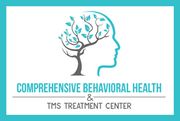What Is the Difference Between Anxiety & Stress?

Anxiety and stress are two common mental health concerns that affect many people in the U.S. While the two are sometimes used interchangeably and can have similar effects, there are key differences you should be aware of. Here is a brief guide that discusses stress and anxiety further and how to address them.
Stress
Stress is the body’s response to an external trigger. It’s often an instinctual reaction to a perceived threat or challenge. It can be an acute response to a short-term trigger—such as an argument, upcoming exam, or work deadline—or a long-term issue—such as poverty or chronic illness.
Multiple small stressors can compound into chronic stress. People who are stressed can typically identify a concrete source of their feeling. Symptoms can be mental or physical, including irritability, anger, digestive difficulties, difficulty concentrating, clenched jaw or teeth grinding, and trouble sleeping.
 Individuals under chronic stress might develop internal stressors as well, such as low self-esteem or confidence. Stress isn’t a diagnosable condition, although it can significantly inhibit a person’s life and well-being.
Individuals under chronic stress might develop internal stressors as well, such as low self-esteem or confidence. Stress isn’t a diagnosable condition, although it can significantly inhibit a person’s life and well-being.
Stress can typically be managed through lifestyle changes. A person may be able to manage and reduce stress by decreasing workload, for example, or taking up activities such as yoga or running. Counseling may also be helpful.
Anxiety
Anxiety originates internally and is a persistent, excessive feeling of fear, apprehension, or dread. Unlike stress, it is a diagnosable psychiatric condition. Severe cases of anxiety are known as anxiety disorders, of which there are several kinds.
Anxiety disorders, including post-traumatic stress disorder (PTSD), generalized anxiety disorder, social anxiety disorder, and obsessive-compulsive disorder, are some of the most prevalent mental health issues in the United States. Another critical difference is that anxiety is often not rational. The person may not know why they are feeling anxious or know that their response is irrational, as the feeling persists after the perceived threat has passed.
Many symptoms of anxiety are similar to those associated with stress, including racing heart, jittery feelings, inability to focus, confusion, irritability, or panic. If untreated, it can be debilitating. Often, depression accompanies anxiety, which can make managing the condition more difficult. Fortunately, mental health professionals can help. They may suggest therapy, medication, or a combination of the two.
If you live in Staunton County, VA, and need mental health care, turn to the compassionate professionals at Comprehensive Behavioral Health. This mental health clinic offers a broad array of psychiatric services, including help managing anxiety and depression. Call (540) 688-2646 to schedule an appointment. Visit the website to learn more about how they can help you live a happier, healthier life.
About the Business
Have a question? Ask the experts!
Send your question

